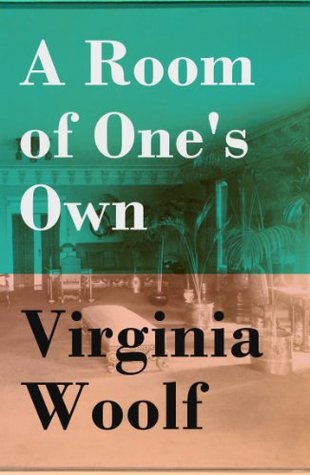More on this book
Community
Kindle Notes & Highlights
So I went back to my inn, and as I walked through the dark streets I pondered this and that, as one does at the end of the day’s work. I pondered why it was that Mrs Seton had no money to leave us; and what effect poverty has on the mind; and what effect wealth has on the mind; and I thought of the queer old gentlemen I had seen that morning with tufts of fur upon their shoulders; and I remembered how if one whistled one of them ran; and I thought of the organ booming in the chapel and of the shut doors of the library; and I thought how unpleasant it is to be locked out; and I thought how it
...more
The thing that i liked is how Woolf not only address the problem with of disparity only at emotional front but also in more rational way
The indifference of the world which Keats and Flaubert and other men of genius have found so hard to bear was in her case not indifference but hostility. The world did not say to her as it said to them, Write if you choose; it makes no difference to me. The world said with a guffaw, Write? What’s the good of your writing? Here the psychologists of Newnham and Girton might come to our help, I thought, looking again at the blank spaces on the shelves. For surely it is time that the effect of discouragement upon the mind of the artist should be measured, as I have seen a dairy company measure the
...more
Johnson repeated the phrase two hundred years later of women preaching. And here, I said, opening a book about music, we have the very words used again in this year of grace, 1928, of women who try to write music. ‘Of Mlle. Germaine Tailleferre one can only repeat Dr Johnson’s dictum concerning, a woman preacher, transposed into terms of music. “Sir, a woman’s composing is like a dog’s walking on his hind legs. It is not done well, but you are surprised to find it done at all.”’[5]
For masterpieces are not single and solitary births; they are the outcome of many years of thinking in common, of thinking by the body of the people, so that the experience of the mass is behind the single voice.
It would be a thousand pities if women wrote like men, or lived like men, or looked like men, for if two sexes are quite inadequate, considering the vastness and variety of the world, how should we manage with one only? Ought not education to bring out and fortify the differences rather than the similarities? For we have too much likeness as it is, and if an explorer should come back and bring word of other sexes looking through the branches of other trees at other skies, nothing would he of greater service to humanity; and we should have the immense pleasure into the bargain of watching
...more
Intellectual freedom depends upon material things. Poetry depends upon intellectual freedom. And women have always been poor, not for two hundred years merely, but from the beginning of time. Women have had less intellectual freedom than the sons of Athenian slaves. Women, then, have not had a dog’s chance of writing poetry. That is why I have laid so much stress on money and a room of one’s own.


